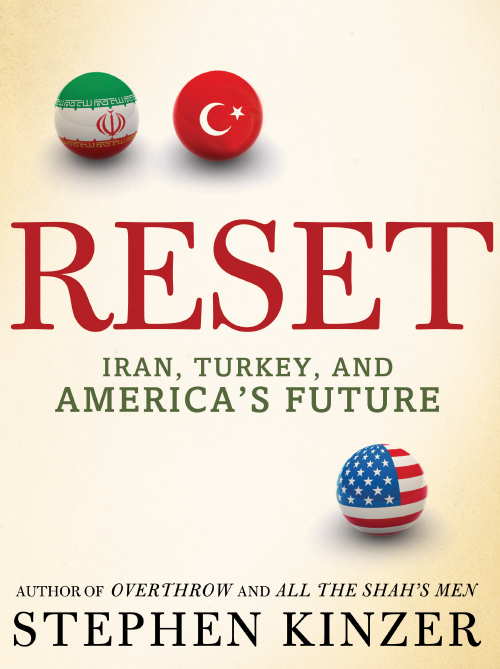Stephen Kinzer’s book Reset is an interesting read. He has written a book that outlines a complete “reset” of American foreign policy in the Middle East. His thesis is that the majority of our foreign policy in that region was shaped by the Cold War, but we now need to rethink all of our relationships and alliances. I think most people agree with that basic premise, but Kinzer takes it further than most.
The book begins with a history of democracy in two key nations: Turkey and Iran, which both have had more experience with democracy than any other Muslim country in the Middle East. This opening can be a bit thick at times and read more like a history book than a foreign policy outline. But eventually, building on the narrative outlined in the history of these two countries, Kinzer leads us to the idea of developing strong relationships with Iran and Turkey as a way to bring stability to the Middle East. Doing so with Turkey is obviously realistic, but doing so with Iran is the real “shocker” in the book. Yet Kinzer builds a reasonable case for why it should be done and how it could be done.
Another part of the book looks at the relationships we have that need to be reconsidered. Saudi Arabia for one. Israel for another. He’s idealistic when he outlines a reshaping of our relationships with these countries, especially Israel. For instance, he states bluntly that peace between Israel and Palestine can be achieved if America simply spends the political capital to make it happen. I’m not so sure of that, and feel that he glosses over the challenges.
I enjoyed this book if for no other reason than it challenged my perspectives. That said, it has some flaws. As I mentioned, it can be idealistic. But it’s also filled with dream-like scenarios, such as the time he rants for paragraphs about how incredible it would be if we had warm and peaceful relations with Iran. Well, duh. We all know that would be great and I don’t need a chapter telling me so. I wish he had spent more time on the “how” rather than the “why”. He seems to summarize the “how” by saying we need smarter people handling our foreign policy (a clear slap at the Bush Administration) and the political will to get it done (which is idealistic and a clear challenge to Obama).
Bottom line, I learned quite a bit from this book. But it’s not a compelling argument as much as it is an idealistic treatise.

